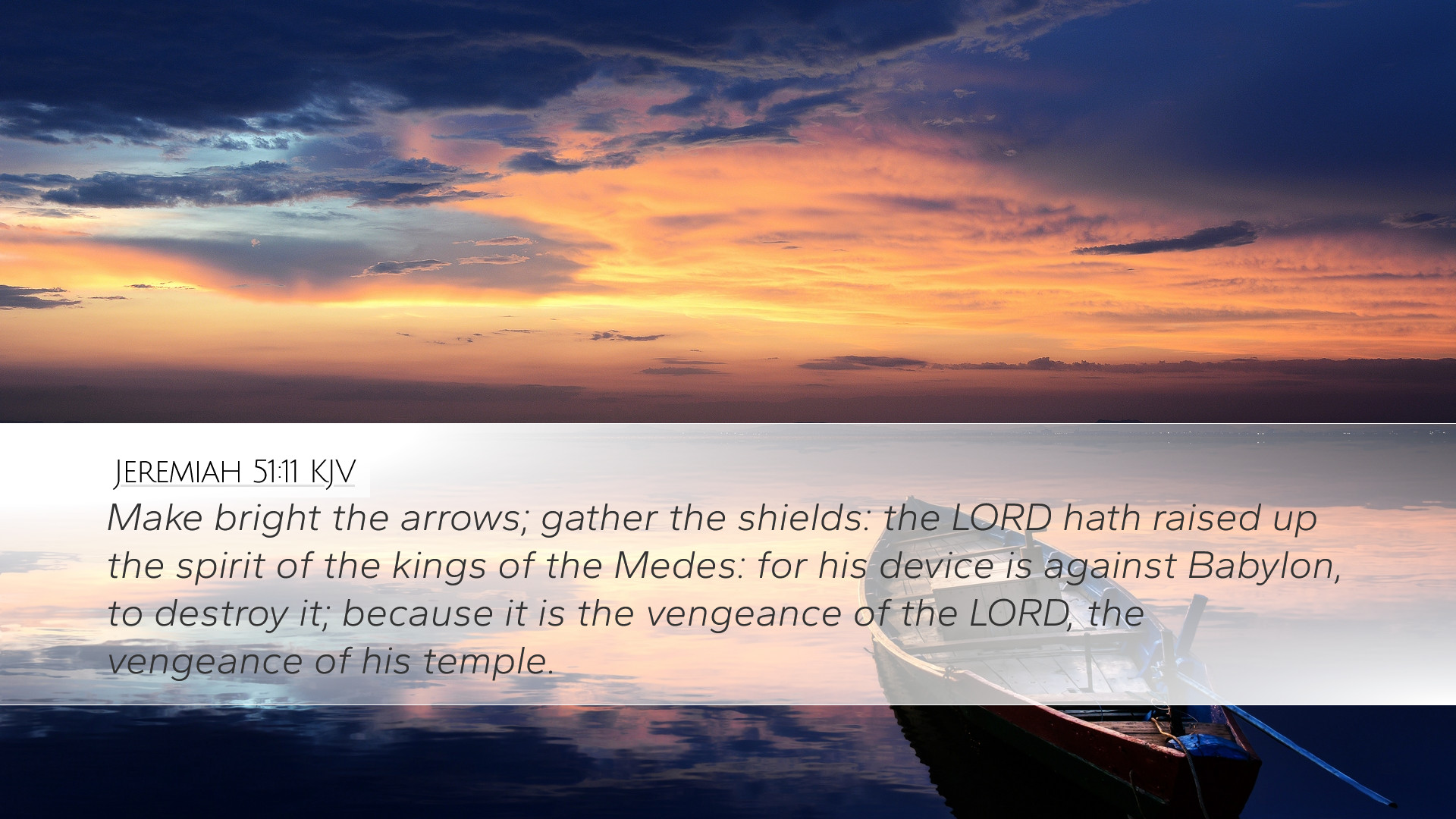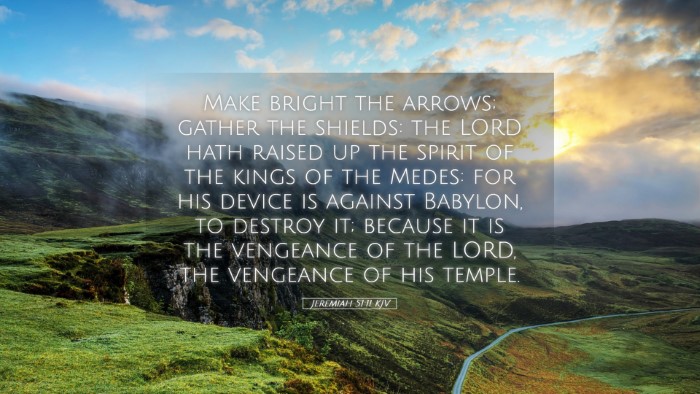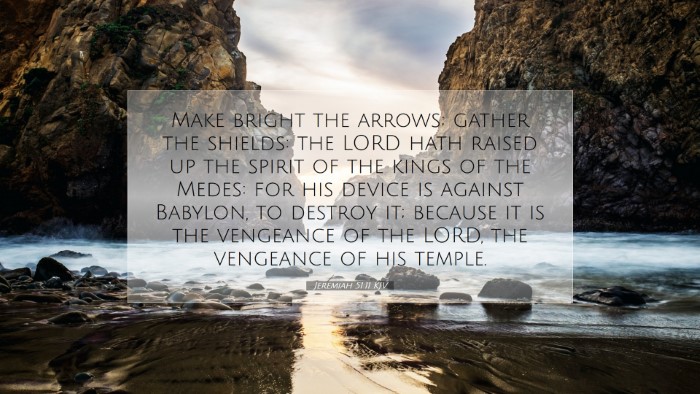Commentary on Jeremiah 51:11
Verse: "Make bright the arrows; gather the shields: the LORD hath raised up the spirit of the kings of the Medes: for his device is against Babylon, to destroy it; because it is the vengeance of the LORD, the vengeance of his temple."
Introduction
This verse in Jeremiah appears during a prophetic denunciation of Babylon, a symbol of pride, idolatry, and corruption. This context is essential for understanding the implications of God’s judgment against Babylon and the significance of the Medes in this divine plan.
Historical Context
The Babylonian Empire represented a pinnacle of worldly power and rebellion against God’s righteousness. The Medes, in coalition with the Persians, would eventually be instruments of God's justice. According to Matthew Henry, this prophecy foreshadows the shift of power from Babylon to the Medes, indicating God's supreme control over nations and their leaders.
Commentary Insights
1. Divine Purpose in Judgment
As Adam Clarke elucidates, the phrase “the LORD hath raised up the spirit of the kings of the Medes” underscores the theological premise that God is sovereign over the rulers of the earth. The stirring of the Medes’ king illustrates how divine intervention can mobilize nations for His purposes. This ties into the broader biblical theme of God's sovereignty and His ability to use even pagan nations to execute divine judgment.
2. Military Imagery
The imagery of making bright arrows and gathering shields is both evocative and instructive. Albert Barnes points out that such military preparation emphasizes the seriousness of the impending conflict. The weapons serve as an outward symbol of spiritual warfare, where God empowers the Medes in their divine commission against Babylon.
3. Theories of Interpretation
Several interpretive lenses can be applied to this passage:
- Literal Interpretation: A straightforward reading recognizes the historical event where the Medes, in alliance with the Persians, indeed conquered Babylon, validating the prophecy of Jeremiah.
- Typological Interpretation: Some scholars suggest Babylon represents not just a physical city but also a spiritual metaphor for sin and opposition to God. In this context, the Medes could symbolize the forces of good that confront such evil.
- Apocalyptic Interpretation: Some theologians align this passage with eschatological themes, viewing Babylon as a symbol of the end times' corrupt world system that will ultimately face divine judgment.
Theological Implications
This verse reveals significant theological insights, including:
- Sovereignty of God: The passage illustrates how God orchestrates events in history for His purposes, emphasizing that all authority ultimately belongs to Him.
- Justice of God: The text highlights that God’s vengeance is just and reflects His character as the protector of His holiness, particularly concerning His temple.
- God’s Instruments: Just as the Medes are utilized as instruments of judgment, believers today are reminded that God can use anyone to fulfill His plans, including those outside the faith.
Application for Today
For contemporary pastors and theologians, this passage serves as a powerful reminder of God's active role in history. It should inspire confidence amid a world that often seems dominated by chaotic forces.
Such insights can guide believers to understand the importance of aligning their lives with God's will. The preparation of arrows and shields serves as a metaphor for spiritual readiness. Ephesians 6:11-17 calls believers to put on the full armor of God, paralleling this sentiment of preparation for battle.
Conclusion
Jeremiah 51:11 serves as a profound reminder of God's sovereign control over world affairs and His righteous judgment against opposition to His divine order. Understanding the historical backdrop and theological implications enables pastors, students, and scholars to appreciate the text's significance fully and to apply its lessons in contemporary settings.


